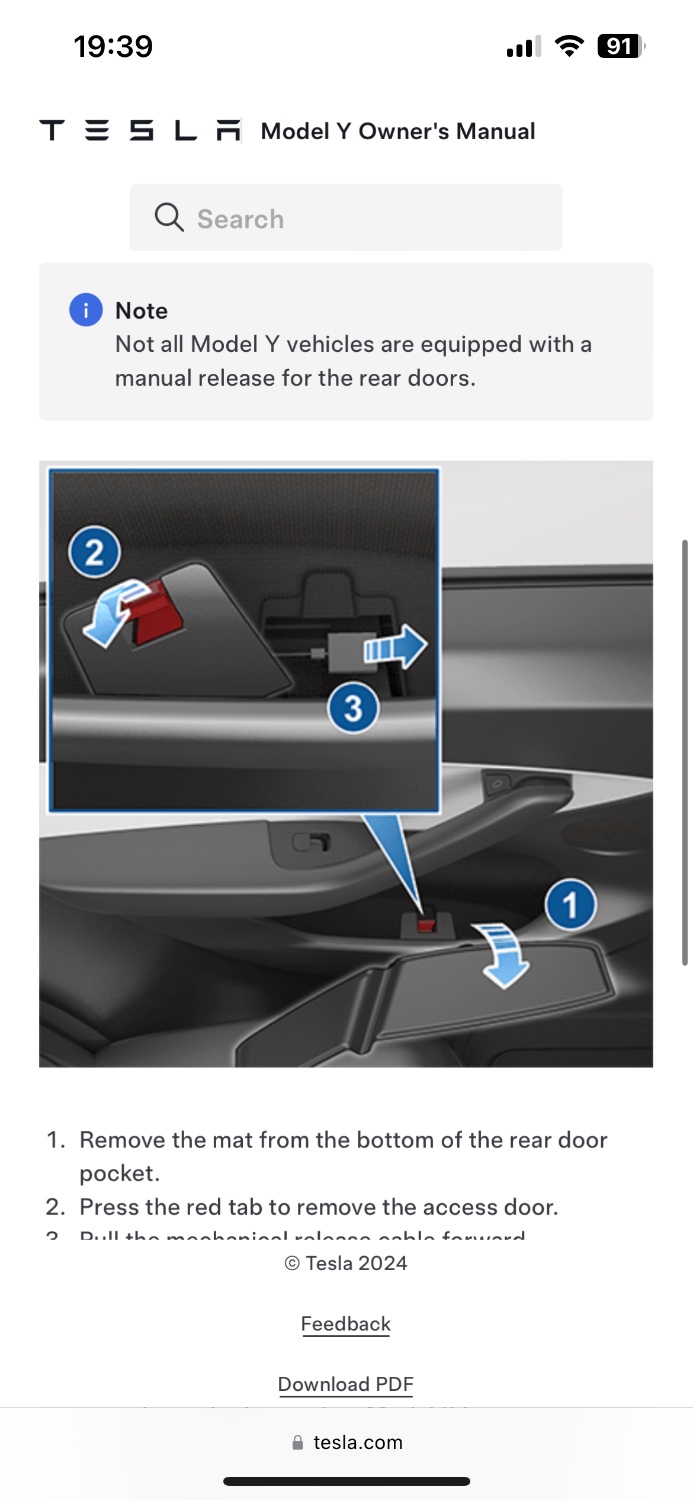

There are only going to be edge-cases where the binary size will really cause headache. Individual projects probably won’t worry too much about a size difference if it’s less than 10-20MB.


There are only going to be edge-cases where the binary size will really cause headache. Individual projects probably won’t worry too much about a size difference if it’s less than 10-20MB.


Some of the notes highlight that performance differences in specific tests were due to AVX-512 support. I’d like to see a post going into detail about what challenges the libraries (or their dependencies) went through to get that integrated and how much of an increase came from it.


Having worked in classified areas, both as an admin and an unprivileged user, CDs were normally the method of transferring data up the network. (Transferring down rarely occurred, and even then you’d be limited to plaintext files or printouts.)
I’ve seen more places use data diodes to perform one- or two-way transfers so that requests can be streamlined and there’s no loose media to worry about tracking. It’s not super fast and higher speeds mean more expensive equipment, but it covers 98% of software update needs, and most non-admin file transfers were under 20MB anyways.
Anything that did require a USB drive, like special test equipment (STE) or BIOS updates, had to use a FIPS-140-1 approved drive that offered a ready-only mode via PIN. This drive could only be written to from a specific workstation that was isolated from the rest of the machines (where data was transferred via CDs of course) and required two persons to perform the job to ensure accountability.
Not the most time-efficient way of doing things, and not completely bulletproof, but it works well enough to keep things moving forward.


we use different search engine so you didn’t find this particular hit
Tangential due to personal curiosity, but which engine did you use? I was testing via Google while logged in. Most of my development at work and at home uses Python with some Rust once or twice a month. I just realized that when I’m searching I usually am not looking for books to purchase but instead trying to find answers in forums or Stackoverflow. Perhaps the reading material was not presented as Google was trying to personalize results to match my search habits.
I was a bit cranky
As was I, and I apologize for that since it triggered all of this.
I’m quite fed up with the attitude that it is someone elses obligation to spoon feed you with knowledge that exists right under the nose
I suggested it in response to someone else’s comment, but I believe part of the issue is a lack of a polished collection of material aimed towards newcomers from particular languages. By that I mean there’s definitely volumes of “good” material, don’t get me wrong, but learning from them individually doesn’t necessarily help with understanding how to think and plan things out with a Rust mindset.
In my own journey I’ve found many guides, posts, and videos that help you get launched into writing basic code. However I struggle to discover ones that go beyond the code to plan and anticipate pitfalls you normally may not encounter from another language. I brought up static lifetimes because halfway through coding a multithreaded project I’ll get an error about this or a struct being partially moved. At which point I would need to refactor things somewhat to make the compiler and borrow checker happy, but mentally it didn’t make sense as to how to correctly do so with what I sought to achieve.
A community-compiled collection of resources that guides you in your journey from Novice to Expert would probably help stem the tide of requests people make for getting into Rust. The official YouTube channel has some interesting videos from conferences but nothing that walks you through proficiency. And the forums, as far as I can tell, don’t have something pinned for users to point towards when someone asks the same thing.
Perhaps if people are asking to be spoon-fed when a lot is available, we should be asking them if they’ve tried to search and why they need help looking for more. Maybe it’s not laziness; perhaps there’s something specific they can’t quite find that helps fill in the gap of their understanding, and we should work towards making those resources easier to discover autonomously.


I didn’t say they were bad. I was pointing out that:
That said, the guide you’ve shared was in fact on the first page of my results, and is definitely a good example of the type of content that is available. What I think should take place is a compilation of similar guides and books to be posted either in the Rust forums as a pin or a YouTube playlist in the official channel, perhaps even with a small list of suggested crates to review the source code of as pristine examples.


There are lots of guides, tutorials and documentation.
is one I found using a tool called search engine…
Strange. That’s not what I get when I search for “Rust for C++ programmers”. I get flooded with anecdotal accounts/posts from people on Reddit and YouTube talking about their love or hate towards Rust.
Then there’s 3 hour-or-longer videos about Rust which target C++ devs directly. Two are from 2022 and 2019 with one from 2023. Only the 2022 video starts from basics with features that a C++ dev would actually need to understand, like ownership, borrowing, and references. One jumps right into multithreading ideas by discussing mutex. The other jumps into how everything is made “easier” because the compile does borrow-checking instead of having the developer manage it.
These videos probably aren’t bad, but they don’t touch on the larger “gotchas” that C++ maintainers will be scratching their head at, like explicit lifetimes, inevitable headaches with error handling, and reference/target mutability. Some of them are a good start, but they mostly focus on just technical features. It’s difficult to find a resource that helps you learn how to plan out your project early on so you’re not refactoring later due to the topics mentioned earlier.
And to be honest, if you are unable to use them to learn rust, maybe your c++ skills isn’t that impressive either.
And this is why 6% of non-Rust users have cited the community as a barrier of entry. Immediate pettiness and hostility rather than trying to get the best resources into the hands of newcomers.


I’ve jokingly said this before, but just wait until manufacturers start adding 4G/5G to TVs explicitly for ads and telemetry…


I’m going to upvote you for providing the viewpoint that models which have the manual releases hide them to prevent damage occurring from someone who instinctively pull on it to open the door. In the case of young children, they won’t know enough to not do the same thing they would do in other vehicles to open the door.
However, obscuring them from view also means they’re at high risk in the event of an accident which kills the power. Trying to calmly walk a child through the steps may not work. I don’t know how much force is needed for some of the release latches (and I’ll assume not a lot is required).


Cybertruck also has manual releases but the rear doors hold it in the map pocket. Better but still not in a sensible place when someone is panicking.


Ok. So that’s the Model 3.
How about the Model Y?

Ok. Not all Model Ys have rear manual releases. I’ll assume the best and believe that only certain countries have this design.
How about the Model X?

So it’s behind the speaker grille. Uncertain if you need a screwdriver, but I’ll assume not. However it is hidden away from sight.
How about the Model S?

Oh, it’s under the carpet.
So yeah, turns out, I’m not making shit up, and there is indeed empirical evidence for it.


I was talking to a Tesla owner about this and they argued that if the window is electric then there’s no difference making the door electric. They couldn’t understand that the door itself can be operated independently of the rest of the vehicle.
Making windows electric causes a safety tradeoff. You get ease of operation while losing the ability to open the window in the event of an accident (where power cannot be supplied). However you can still unlock and open the door manually as an alternative escape option. This also applies in non-accident scenarios (dead battery).
Making doors electric is nothing more than a safety risk. From the inside you might have access to a manual release latch, but some doors require you to unscrew things first. Any emergency situation where you need to exit as soon as possible and the power is lost almost guarantees that you’ll be unable to safely escape.


I’m worried about the security of this. However looking past that and simply observing it as an implementation of AI, this is an idea that I think is actually a beneficial use. Protecting the elderly against fraud/scams is a major issue which gets increasingly complex as scammers improve their methods. Using AI to detect scams in calls could be helpful in protecting the elderly.
But before rolling it out, I would want to see proof of its efficiency through careful studies. Hell, incentivize Google to share the model with the government and other businesses so it can be improved upon. Fund it as a grant/program so smaller teams/companies can contribute and innovate.


I think it would’ve been funny if the title was “StackOverflow contributors are revolting” and the comment was “a little more than usual.”
But hey, gotta get whatever amount of humor in while you can.


It’s not symmetrical yet though. Which is weird.
Eh, I would say it’s to be expected. A lot of infrastructure still relies on coax/DOCSIS which has its limitations in comparison to an all-fiber backbone. (This post has some good explanations.) However it wouldn’t surprise me if some ISPs argue that “nobody needs that much uplink” and “it helps restrict piracy” when really it’s just them holding out against performing upgrades.
I don’t doubt that some places care about a 1MB size difference. After all, some embedded systems with limited storage need every megabyte they can spare.